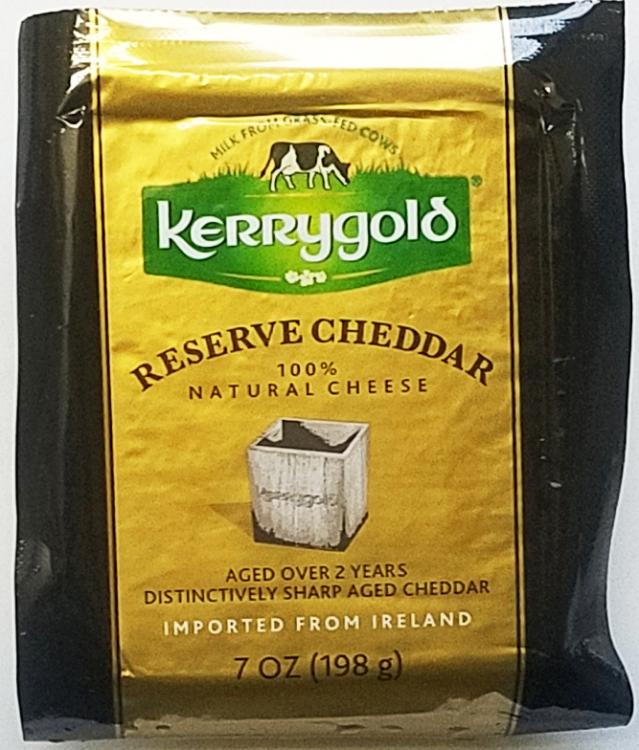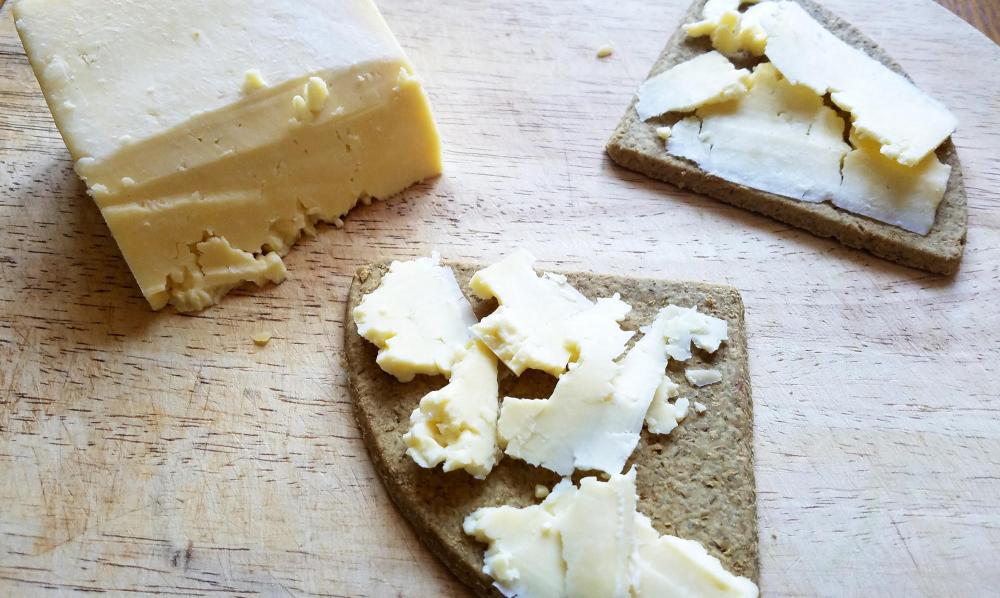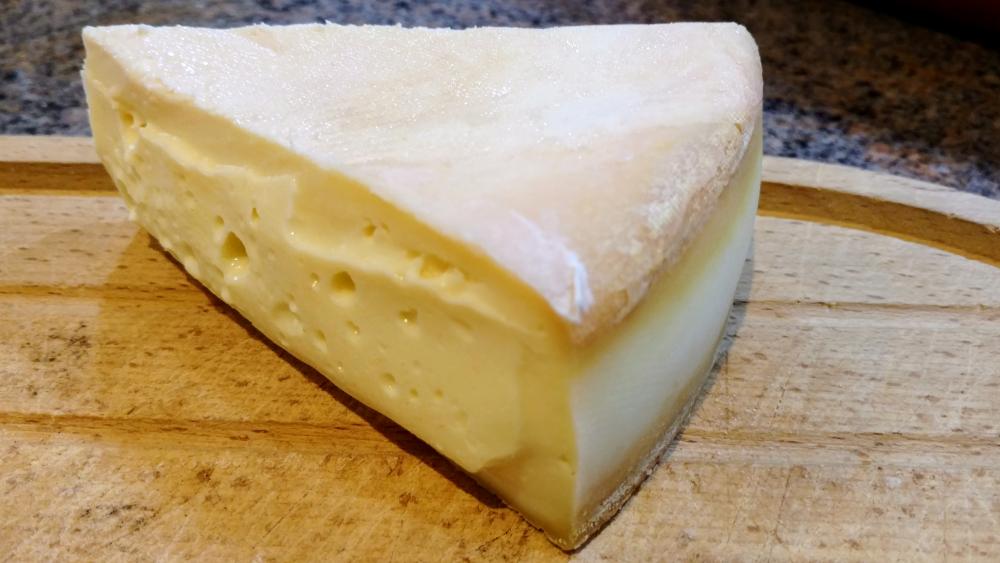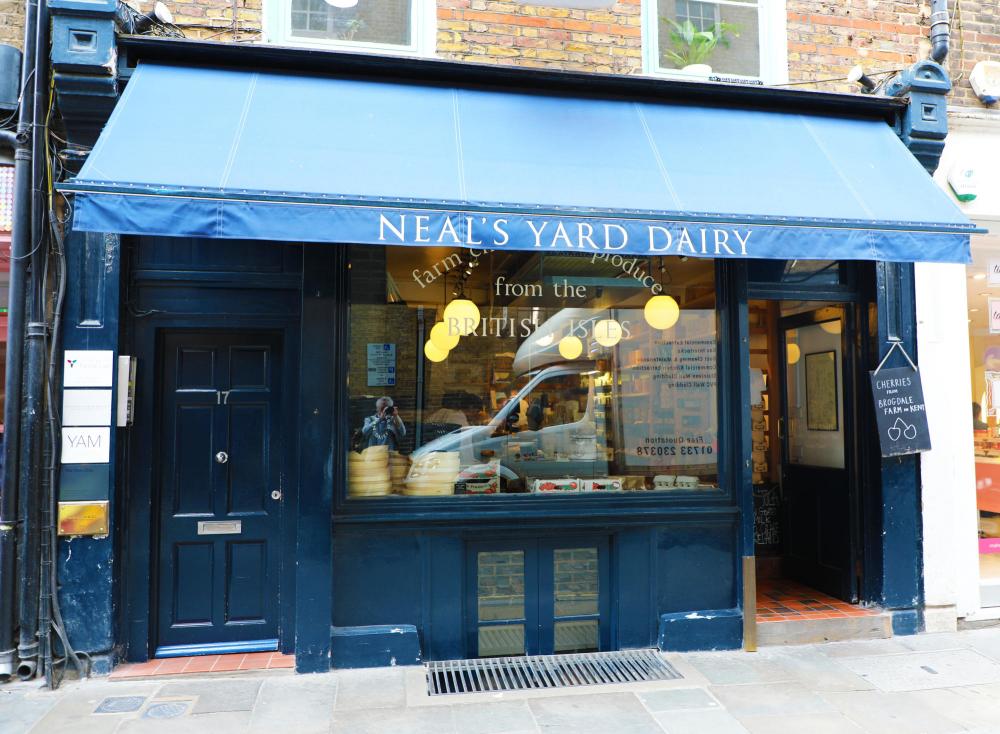2B - Cheeses
According to the British Cheese Board, a trade body formed to promote British cheeses, the country has around 700 named cheeses, some made in huge quantities in factories; the majority made in very small quantities by hand, in farms and dairies. This compares to France and Italy with around 400 each. These 700 include some world famous cheeses. Obviously, I’m not going to list all 700, but here is a small selection, all of which I have tasted.
Blue Cheeses
Stilton is probably the best known British blue cheese. This takes its name from the village in what is now Cambridgeshire, England where the cheese has long been sold. The village lies on one of the main routes north from London and villagers sold the cheese to passing travellers. Still do. Daniel Defoe, author of Robinson Crusoe mentions the village and the cheese in his 1724 book A tour thro' the whole island of Great Britain.
Quote"We pass'd Stilton, a town famous for cheese, which is call'd our English Parmesan, and is brought to table with the mites or maggots round it, so thick, that they bring a spoon with them for you to eat the mites with, as you do the cheese."
There were probably no maggots. He is more likely referring to the blue veins.
The cheese has a PDO (Protected Designation of Origin) status within the European Union (still) which requires that it can only be made in the counties of Derbyshire, Leicestershire and Nottinghamshire. You will note that this does not include Stilton itself, but it was probably never made there anyway.
Stilton is also produced in a soft white version..
Blue Stilton is exported and is even sold in France, where it has recently become a fashion. I have bought it in China, a country which supposedly doesn’t do dairy.
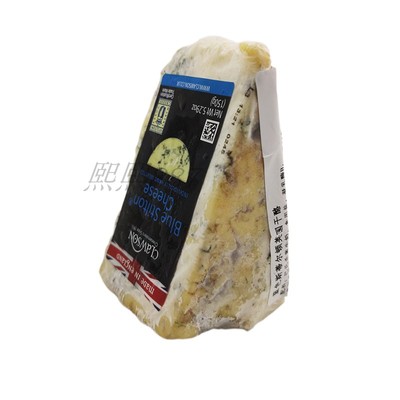
Stilton in China
Other blue cheeses include Dorset Blue Vinney (also PDO) made in Sturminster Newton in Dorset. This is a hard, crumbly cheese with a distinct, strong flavour.
Dovedale (PDO) is a full-fat cow’s milk semi-soft cheese made from cow's milk and is from the Peak District.
Stilton is made from pasteurised milk, but there is a Stilton-like cheese known as Stichelton which uses non-pasteurised milk and no factory-produced rennet.
Not to be left out, Scotland throws its hat into the blue cheese ring with Dunlop cheese and Lanark Blue.
Hard and Semi-Hard Non-Blue Cheeses
Here is where we find the world’s most popular cheese, Cheddar. Originally produced in guess where – Cheddar, a village in Somerset, England, the cheese has no protected status so can be made anywhere. I buy cheddar cheese made in Shanghai or in Inner Mongolia. I can also buy imported Australian, New Zealand and Irish cheddars.
In fact "cheddaring" is a technique used in the production of the cheese and there are many varieties. “West Country Farmhouse Cheddar” does have PDO status and can only be made in Somerset, Dorset, Devon and Cornwall from local milk and made by traditional methods. It is delicious.
Sadly many so-called cheeses are sold under the cheddar name, while bearing no resemblance to the real thing. That travesty, American cheese, is often sold labelled as cheddar.
It is certainly the most popular cheese in many countries. Only mozzarella outsells cheddar in the USA. (Did someone mention cultural appropriation?)
Other British hard cheeses include Caerphilly, a cow’s milk cheese from Wales; Cheshire Cheese; Lancashire, which comes in three varieties; Double Gloucester; Sage Derby which is coloured green with sage, which also gives it a mild herbal flavour; Red Windsor, flavoured and coloured with Bordeaux wine or a mixture of port and brandy; the very popular Red Leicester which, in Britain, is Cheddar’s nearest rival; and Wallace and Gromit’s favourite, Wensleydale.
Wensleydale Cheese with Oatcakes
Soft and Semi-Soft Cheeses
Perhaps the most famous of the British semi-soft cheeses is the relative newcomer, Stinking Bishop. This is a cow’s milk cheese which, as it matures, is washed every four weeks in perry, an alcoholic drink similar to cider, made from the Stinking Bishop variety of pear. Many people think the name refers to the smell of the cheese, but although the cheese does have a distinctive smell, few people, if any, would describe it as ‘stinking’. Instead the name comes from a local bishop and landowner who had a stinking temper. The cheese was first made in the 1970s. I first tasted it in 2019.
As a handmade artisan cheese, this is only produced in small quantities and is not sold in supermarkets, but only specialist cheese shops and delis, although London’s world-famous Harrods does stock it.
Scotland’s second oldest cheese is Caboc, an oatmeal-wrapped cream cheese with an interesting story. It was developed in the 15th century by Mariota de Ile, the daughter of the chieftain of the Clan MacDonald. The recipe has remained a secret to this day.
The oldest is Crowdie, a soft fresh cheese which was influenced by methods learned from the Vikings, who invaded Britain in 793 AD. There is evidence that it may in fact date back further to the Picts in the early Middle Ages. Much later, the crowdie makers also took to making a variety flavoured with wild garlic, after a bunch of cows accidentally wandered into a field of wild garlic, accidentally flavouring their milk. Traditionally the cheese was made by crofters and small land-holders, using the milk from the family cow. Unfortunately, the name is unprotected and a number of industrial cheesemakers are now producing their variety which has very little in common with the original. A few traditional makers still exist, but they are a dying breed. Efforts are being made to revive the cheese.
One more to mentions is the delightfully named Renegade Monk , a soft blue cheese made in England by only one farm in Somerset, England. It won first prize in the 2020 Best British Cheese awards ceremony, held virtually due to COVID restrictions.
This is obviously a ridiculously small sample, but hopefully it gives an insight into the wide variety of cheeses on offer. Visitors to London (when it's allowed) can do no better than visit the legendary Neal's Yard Dairy in Covent Garden, which only sells British cheeses in perfect condition.


